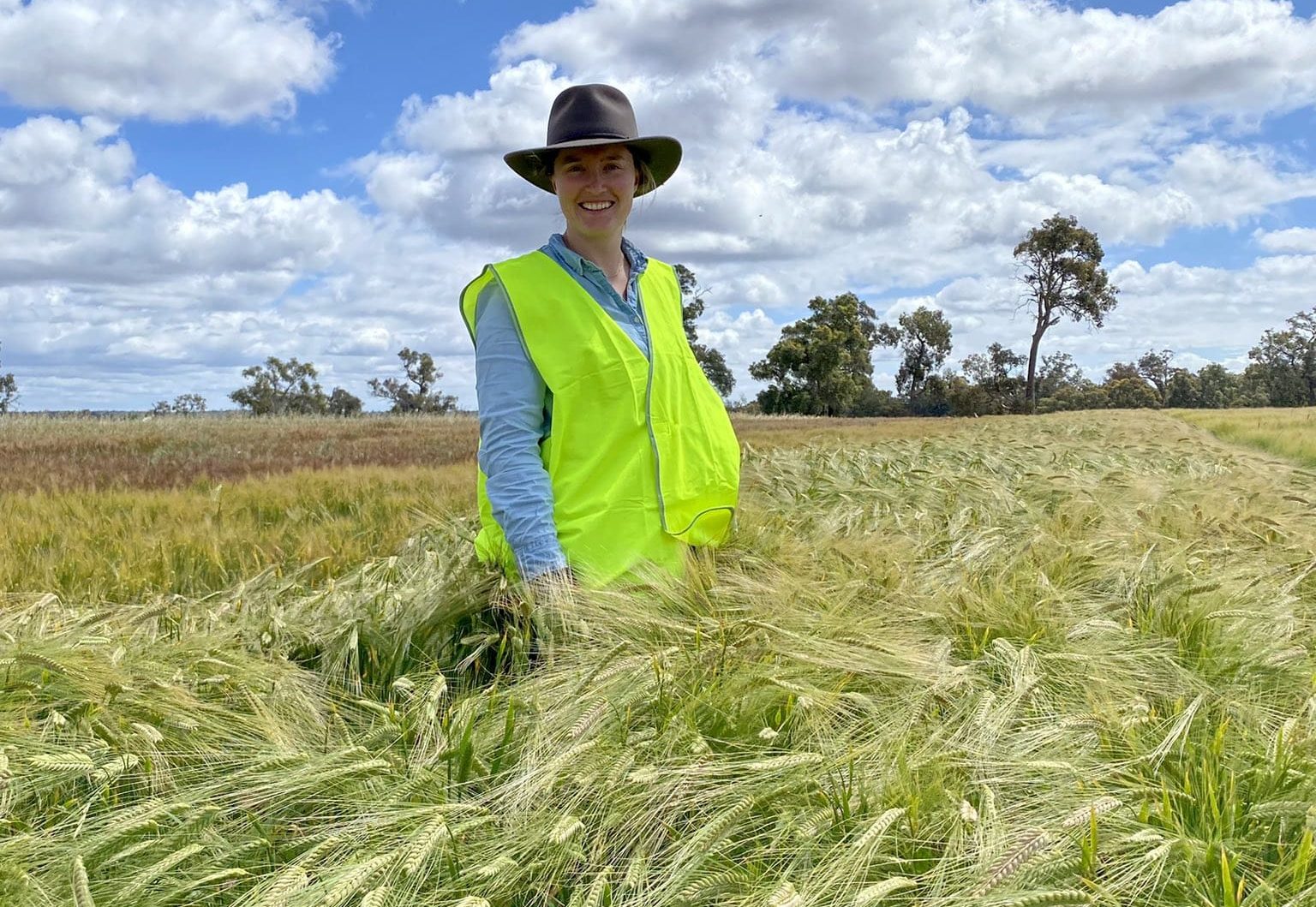
A 2022-23 crop of Commodus CL barley at InterGrain’s commercial production site at Wundowie, WA. Photo: Georgia Trainor, InterGrain
THE Grain Industry Association of Western Australia has released the Western Australian Malt Barley Variety Receival Recommendations for the 2024-25 harvest.
Observations indicate there has been no major change in international barley and malt trade fundamentals over the past 12 months as diversification of markets and increased acceptance of Australian barley and malt to Africa, Asia, Mexico, and South America continues.
A considerable change that will impact the 2024-25 harvest is China’s removal of the 80.5 percent anti‐
dumping and countervailing duty measures on Australian barley, and lifting of the ban on Emerald Grain, now trading as Louis Dreyfus Company, and CBH Grain.
GIWA Barley Council chair and InterGrain barley breeder David Moody said the end of the barley tariff was good news for the barley industry.
“WA has a strong trade history with China and our varieties work well within the Chinese malting and
brewing systems,” Mr Moody said.
“Chinese maltsters and brewers will need to adjust to the change in the malt variety mix since implementing tariffs in 2020.
“For example, varieties such as La Trobe and Scope CL are no longer segregated, and WA growers have switched from Spartacus CL to Maximus CL.”
Mr Moody said the resumption of the barley trade with China will provide WA with new opportunities to engage with the market, and assist them in adapting to new varieties.
The WA Malt Barley Variety Receival Recommendations also highlight Perth’s Boortmalt and United Malt malthouses as the largest buyers of WA malting barley.
The two Perth plants procure more than 300,000 tonnes of malting barley grain annually from growers in the Kwinana and Albany port zones.
Both processors have strong demand from south‐east Asia and Japan for barley that malts without adjuncts, namely Bass, Flinders and RGT Planet, but growers continue to move away from these varieties and their production is now low.
Growers planning to continue sowing Bass and Flinders should communicate with domestic processors through their buyers.
Sales may be through direct contracts rather than delivering into the CBH system.
Due to tight supply, premiums for Bass, Flinders and RGT Planet were high through 2022-23, and growers can expect this to continue for the 2023-24 and 2024-25 crops.
“Each year, the GIWA Barley Council works with the WA barley value chain to provide guidance to industry on the management of malt barley segregations in the bulk-handling system.
“I strongly encourage growers and their consultants to take note of the recommendations within the plan when considering their 2024 barley cropping program.”
For more information on the WA Malt Barley Variety Receival Recommendations for the 2024-25 harvest, visit the GIWA website.
Source: GIWA

HAVE YOUR SAY